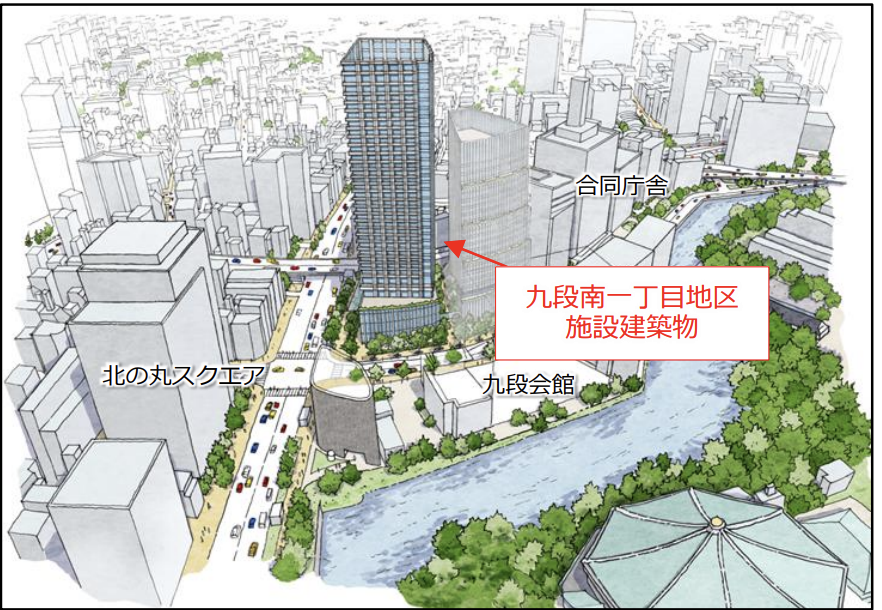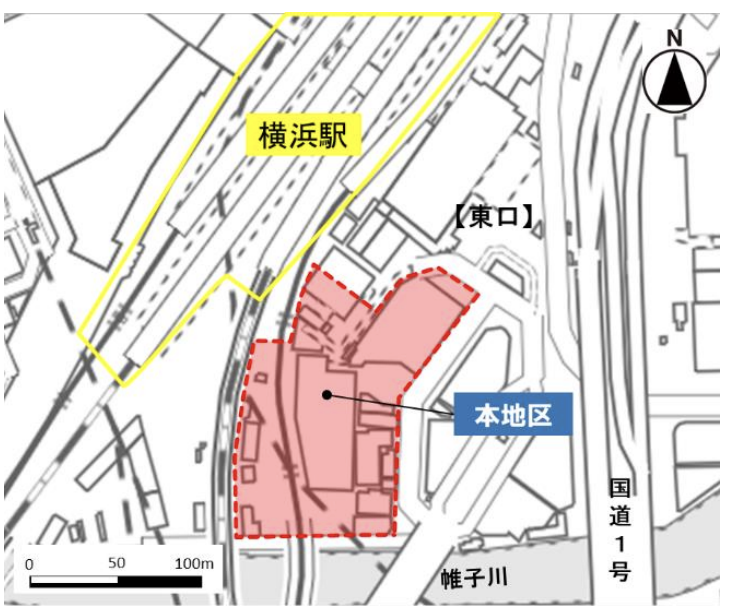What kind of image do you have of the term "sublease" in real estate investment?
While the attractive aspect of "no vacancy risk and stable rental income" is emphasized, in recent years, serious problems such as "rent is reduced unilaterally" and "it is impossible to terminate the lease even if you want to" have become social problems.
This article thoroughly explains the structure of sublease contracts and the nature of the risks involved from the perspective of an expert who has been involved in numerous real estate transactions as INA & Associates, Inc.
We aim to serve as a compass to protect your valuable assets by confronting the reality hidden behind the word "stability.
Structure and Merits/Demerits of Sublease Contracts
A sublease is a system in which a real estate company (sublessor) leases a property from the owner in bulk and subleases it to tenants.
The contract between the owner and the sublessor is called the "master lease contract," and the contract between the sublessor and the tenant is called the "sublease contract (sublease agreement).
This dual structure allows the sublessor to profit from the difference between the actual rent earned from the tenant and the guaranteed rent paid to the owner.
Merit: Possibility to earn a stable income without hassle
The biggest advantage for the owner is that the sublessor pays a fixed monthly rent (guaranteed rent) regardless of whether or not there is a vacancy.
This avoids the risk of vacancy, which is the biggest concern in rental management, and allows the owner to anticipate a stable income.
In addition, subleasing is an attractive option for those who want to manage real estate without spending time and effort, as most of the complicated management tasks, such as tenant recruitment, complaint handling, and property maintenance, can be outsourced to subleasing companies.
Furthermore, since the sublessor bears the risk of nonpayment of rent by tenants, owners do not need to worry about a decrease in income due to nonpayment.
The fact that long-term contracts make it easier to plan for future income and expenditures is also a source of reassurance for novice real estate investors.
Disadvantages: Potential Risks Outweigh the Advantages
However, these advantages come at a heavy price.
Guaranteed rents are generally set at 80-90% of the market rent that would normally be earned.
In other words, profitability is reduced by 10-20% compared to the case where full occupancy is achieved.
Furthermore, in many cases, the contract includes a clause stating that the rent will be reviewed every few years, so the initially promised rent is not guaranteed for the future.
Rather, it is a common practice to demand rent reductions over time.
The following table compares typical rental management and sublease agreements.
At first glance, subleasing appears to be more stable, but its superiority is shaken when rent reductions and cancellation risks are taken into account.
| Item | General rental management | Sublease Contracts |
|---|---|---|
| Profitability | Full market rent (excluding vacancy) | 80-90% of market rent |
| Vacancy risk | Owner bears the burden | Burdened by sublessor (formal) |
| Management | Outsourced to management company (separate costs) | Performed by sublessor |
| Rent fluctuation risk | Linked to the market | Large risk of unilateral rent reduction by the sublessor |
| Contract flexibility | Relatively easy to terminate | Extremely difficult to terminate from the owner |
| Impact on sale | Can be sold at market price | Tends to be about 20% lower than the market price |
It is too late for regret! Serious Risks Involved in Sublease Contracts
The risks posed by sublease contracts are not limited to mere loss of profitability.
There are more serious problems that can shake the very foundation of the contract.
Risk 1: Inevitable Rent Reduction Claims
There are many cases in which a sublessor, believing in the "30-year rent guarantee," signs a contract, only to be asked for a substantial rent reduction a few years later.
This is because most sublease contracts are based on a "general lease contract," and Article 32 of the Land and House Lease Law legally guarantees the right of the tenant (sublessor) to demand a rent reduction.
Even if there is a clause in the contract stating that the rent will not be reduced, it is considered invalid under this law.
This is a structural problem that cannot be overlooked from the standpoint of consumer protection.
There have been actual cases reported where a contract was initially signed for 1,000,000 yen per month, but five years later the rent was reduced to 500,000 yen.
Such a drastic reduction may overturn the owner's income/expense plan from the very beginning, and in some cases, may lead to a situation where loan repayment becomes difficult.
Risk 2: "non-cancellation" trap with no way out
Even if the owner, who has had the rent reduced, requests cancellation of the contract, Article 28 of the Land and House Lease Law becomes an obstacle.
The lessor (owner) must have "just cause" to terminate the lease, and it is extremely rare that simply stating that "income and expenditures have deteriorated" is recognized as just cause.
The only cases in which it may be accepted as just cause are when the owner himself or his relatives need to live in the building, when the property needs to be rebuilt under the old earthquake-proof standard, or when the property needs to be sold due to redevelopment projects or public works projects.
In effect, once a contract is signed, it is very difficult for the owner to terminate the contract for his/her own reasons, and the real estate, which is supposed to be an asset, becomes a hindrance.
Even if the sublessor agrees to terminate the contract, it is common for the sublessor to demand a high penalty fee equivalent to 6 to 12 months of the monthly rent.
Risk 3: Expensive "repair costs" and penalties
When major repairs are required due to the aging of the building, trouble often arises over the cost burdens.
There have been reports of sublessors taking the initiative in making repairs and charging owners high costs, or demanding high penalty fees equivalent to 6 months to 1 year's rent as a condition for accepting cancellation of the lease.
In many cases, the contract states that "major repairs are to be borne by the owner," leaving little room for the owner to determine the necessity of repairs or the appropriateness of the amount.
It is not uncommon for unexpected repair costs to arise, causing the initial goal of "stable income" from the sublease contract to be completely lost.
Risk 4: Substantial decline in sale price
When trying to sell a property with a sublease agreement, the price tends to be about 20% lower than the market price.
This is because the buyer must take over the sublease contract and inherit risks such as rent reduction and difficulty in cancellation.
In addition, depending on the contents of the sublease contract, there is a risk that a buyer may be difficult to find and the sale period may be prolonged.
In considering exit strategies, this reduction in sale price is an important factor that cannot be ignored.
What is the "sublease problem?"
Due to the revision of the Inheritance Tax Law, the basic inheritance tax exemption has been substantially reduced.
In response, there has been a sharp increase in the construction of apartments and condominiums as an inheritance tax measure, many of which involve sublease contracts.
Many of these contracts have a fixed rent guarantee period of 10 years, and are known as the "sublease problem" because they will all come up for renewal at the same time around 2025.
Owners who reach the renewal period face the risk of either being asked to significantly reduce rents or having their contracts refused for renewal.
In particular, in areas where the population is declining and rental demand is decreasing, demands for rent reductions from sublessors are expected to become more severe.
This problem is not merely an individual trouble, but could force structural changes in the real estate industry as a whole.
Enforcement of the "Rental Housing Management Business Law" and Remaining Issues
In June 2021, the "Law Concerning Proper Management of Rental Housing (Rental Housing Management Business Law)" was fully enforced in response to these problems.
Under this law, sublessors are now obligated to
- Prohibit exaggerated advertisements: Prohibit misleading expressions such as "guaranteed rent.
- Prohibit unreasonable solicitation: Prohibit acts such as intentionally failing to disclose risks or providing false explanations.
- Explanation of important matters before signing a contract: Obligation to deliver and explain written documents regarding risks, such as conditions for rent reduction.
- Delivery of documents at the time of conclusion of contract: Obligation to deliver documents clearly stating the contents of the contract.
- Inspection of documents: Obligation to keep and inspect business condition records and financial statements.
This amendment to the law is a major step toward owner protection.
However, we must recognize that the problems with the Land and House Lease Law, which is the foundation of the law, have not been resolved, and there are still structural risks inherent in sublease contracts.
The Rental Housing Management Business Law only regulates unreasonable solicitation and exaggerated advertisements, and does not resolve fundamental problems such as the right to demand rent reduction and difficulties in cancellation.
Points to keep in mind when considering a sublease agreement
If you are forced to consider a sublease agreement, be sure to confirm the following points.
First, check to see if the sublessor is registered with the Ministry of Land, Infrastructure, Transport and Tourism as a rental housing management company.
If the sublessor is registered, it meets certain standards and is obligated to explain important matters.
Next, we recommend that you check the details of the contract and consult with a lawyer or other expert, especially with regard to the terms of rent review, termination clauses, and the division of repair expenses.
It is also important to negotiate whether a "fixed-term lease" contract is possible.
A fixed-term lease contract can ensure that the contract will be terminated at the end of the contract period, reducing the risk compared to a standard lease contract.
However, it should be noted that in practice, it is extremely rare for a sublessor to accept a fixed-term lease agreement.
In addition, it is essential to investigate the sublessor's financial condition and management track record to determine whether the sublessor can be expected to provide stable management over the long term.
If the sublessor goes bankrupt, the owner will take over the contract with the tenants, which may cause a great deal of confusion.
In summary, easy choices tie up the future.
At first glance, a sublease contract may appear to be a dreamy mechanism to realize stable, disposable income.
However, the reality is that it is an extremely disadvantageous contract for the owner, built on a legal imbalance.
In particular, beginners in real estate investment with less knowledge and experience tend to fall into the trap of such sweet words.
What is important is not to be misled by the immediate word "stability," but to correctly understand the risks involved in the contract and to think about asset building from a long-term perspective.
In addition to subleasing, there are several other options, such as "general rental management," in which operations are outsourced to a reliable management company, and "vacancy guarantees," in which you receive guarantees only when vacancies occur.
The only way to success is to calmly compare and consider the advantages and disadvantages of each and choose the method that best fits your investment strategy.
In addition, if you already have a sublease contract, we recommend that you reconfirm the details of the contract and consult with a specialist as soon as possible if the renewal period is approaching.
INA&Associates Inc. does not adhere to any particular solution, but rather proposes the best real estate strategy for each individual client's situation.
Please do not hesitate to contact us if you have any concerns regarding sublease contracts or your future real estate management.
We promise to do our best to support your asset building with our professional expertise and sincere response.
Frequently Asked Questions (Q&A)
- Q1. I would like to terminate the sublease contract in the middle of the lease term.
- A1. It is extremely difficult for the owner to terminate the contract unless there is a "justifiable reason" as stipulated in the Land and House Lease Law. We recommend that you first check the contents of the contract and consult an attorney or other specialist. Even if just cause is not found, it may be possible to terminate the lease by paying a large penalty.
- Q2. Is there less risk with a "fixed-term lease contract"?
- A2. Theoretically, the risk is reduced compared to a fixed-term contract because the contract can be terminated without fail at the expiration of the contract period. In practice, however, it is rare for a sublessor to accept a fixed-term lease contract. If you are able to enter into a fixed-term lease agreement, please carefully consider the length of the contract and the conditions for renewal.
- Q3. Now that the Rental Housing Management Business Law has been established, can I rest easy now?
- A3. No, you cannot rest assured. The law only regulates improper solicitation, and does not eliminate the fundamental risks inherent in sublease contracts, such as rent reduction and difficulties in cancellation. It is still important to thoroughly review the contract before signing and periodically review the contract after signing.
- Q4. What are the key points in selecting a sublessor?
- A4. The minimum requirement is that the sublessor be registered with the Ministry of Land, Infrastructure, Transport and Tourism. On top of that, a thorough comparison of financial condition, management track record, and contract details (especially rent review terms and termination clauses) should be made. The safest choice, however, is to carefully reconsider the sublease option itself.
- Q5. Is there anything I can do now to prepare for sublease issues?
- A5. First, check the current contract and understand the renewal period and rent review terms. Next, research the rental market in the surrounding area to determine if the current guaranteed rent is appropriate. If renewal time is approaching, we recommend that you consult with a specialist as soon as possible to discuss exit strategies, including measures to deal with rent reductions and possibly selling the property.

Daisuke Inazawa
Representative Director of INA&Associates Inc. Based in Osaka, Tokyo, and Kanagawa, he is engaged in real estate sales, leasing, and management. He provides services based on his extensive experience in the real estate industry. Based on the philosophy that “human resources are a company's most important asset,” he places great importance on human resource development. He continues to take on the challenge of creating sustainable corporate value.

.png)













